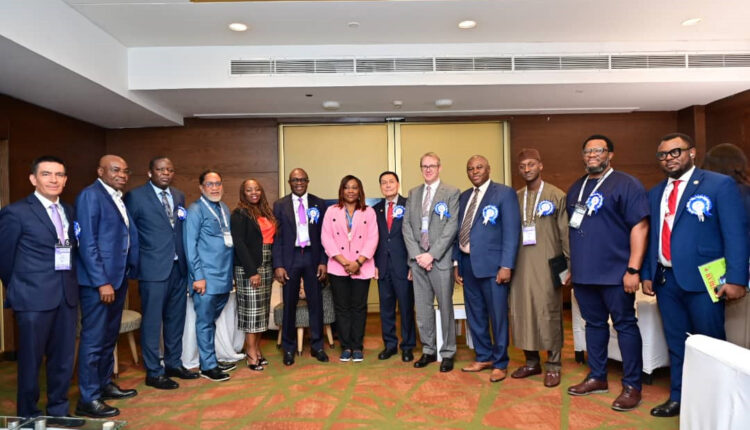NNPCL Adopts Aggressive Gas Development Strategy For Energy Sustainability
The Nigerian National Petroleum Company Limited, NNPCL, is developing key strategic pathways to sustain and increase its aggressive gas development and gas transportation projects to achieve affordable and clean energy.
The drive is in line with the United Nations Sustainable Development Goal (SDG), Goal No. 7, as.well as part of the company’s strategic energy plan towards finding a balance for the energy trilemma.
Speaking at the opening of the Nigeria Annual International Conference & Exhibition NAICE 2023, themed; “Balancing Energy Accessibility, Affordability, and Sustainability: Strategic Options for Africa” in Lagos on Monday hosted by the Society of Petroleum Engineers, SPE, Nigeria Council, the Group Chief Executive Officer, GCEO, of the company Mele Kyari, said that African countries are grappling with strategies of balancing energy availability with meeting the United Nations Sustainable Development Goals No 7 (Affordable and Clean Energy) and No 13 (climate actions).
Kyari, noted that in Nigeria there is the need to create energy accessibility to ensure all citizens can access reliable, modern energy, irrespective of their location or socio-economic status. In addition he said that energy affordability entails ensuring energy and its infrastructure are priced so they can be obtained without financial strain by Africans, while energy sustainability implies that our energy use does not harm the local environment or exhaust resources, affecting future generations.
“This is indeed a trilemma situation and the delicate balance between political will, technological innovation, effective market mechanisms, well-crafted policy interventions, and capacity building.
It also demands a multi-stakeholder approach, one that involves government, the private sector, civil society, host community and the public at large.” he said.
Kyari, further noted that the Nigerian energy industry has witnessed strategic transformation which has given birth to a viable industry legislation, the Petroleum Industry Act, PIA, and a long-term gas-centered energy transition plan.
Speaking further the GCEO, added, “On the policy front, we have also seen the emergence of the incorporation of our national oil company from NNPC to NNPC Limited.
“The PIA also provides for NNPC Ltd. to engage in the renewable energy business; and the Nigerian Climate Act for mainstreaming climate change actions to achieve low emissions, inclusive green growth, and sustainable economic development.”
He also said that Nigeria is not transitioning away from the hydrocarbons as he expressed hope to see an increase in the footprint of alternative cleaner energy sources in the foreseeable future amid fossil fuel dominance.
“We use what we have to get to our desired destination. This is the reason that NNPC Limited has identified gas as a transition fuel and we are expanding our gas development and gas infrastructure across the country to increase energy accessibility.
“Today, Nigeria has about 209.5 Trillion Cubic Feet of natural gas reserves with a potential upside of up to 600 TCF, and this is an enormous resource that would drive cleaner and affordable energy vision.” he revealed.
However, he said that the other alternative energy sources such as solar and wind are faced with technology limitations and that they are still not affordable and cannot meet the high energy demands of our industries, cities and remote environments.
He therefore encouraged all industry stakeholders and the SPE Nigeria Council to contribute to ensuring the provision of affordable, clean, and efficient energy options to our stakeholders comprising over 200 million Nigerians, under a just and equitable transition.
This includes not only efforts in harnessing the existing energy resources but also in innovative research, development, and adoption of new and emerging technologies in the energy sector.
He said “Our collective success will be defined by how we deliver affordable wide range of energy sources sustainably” but however observed that
all of these cannot be achieved if we do not have security of our operations. We will continue to further deepen collaboration amongst all the relevant stakeholders; government security agencies, host communities and others to enhance our energy security.
This he said will require provision of adequate and timely investments to build resilient energy systems capable of delivering energy to support socio-economic development in a sustainable manner.


